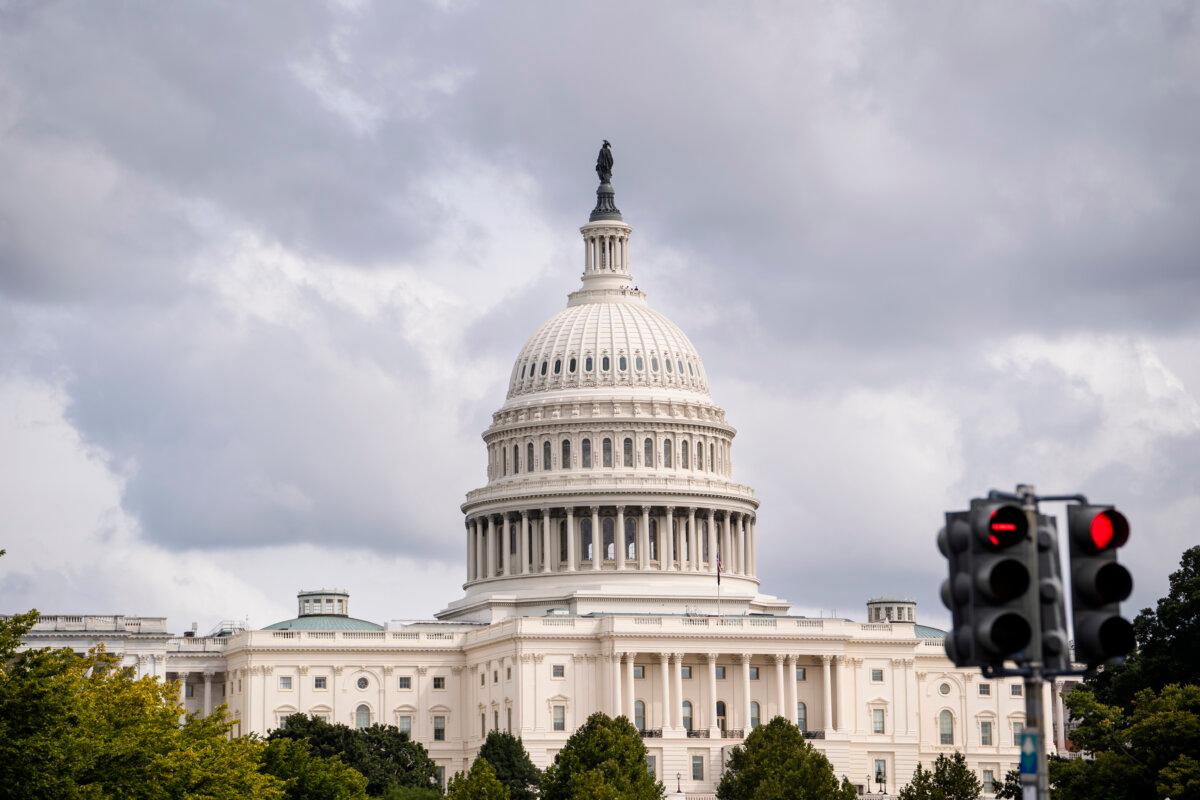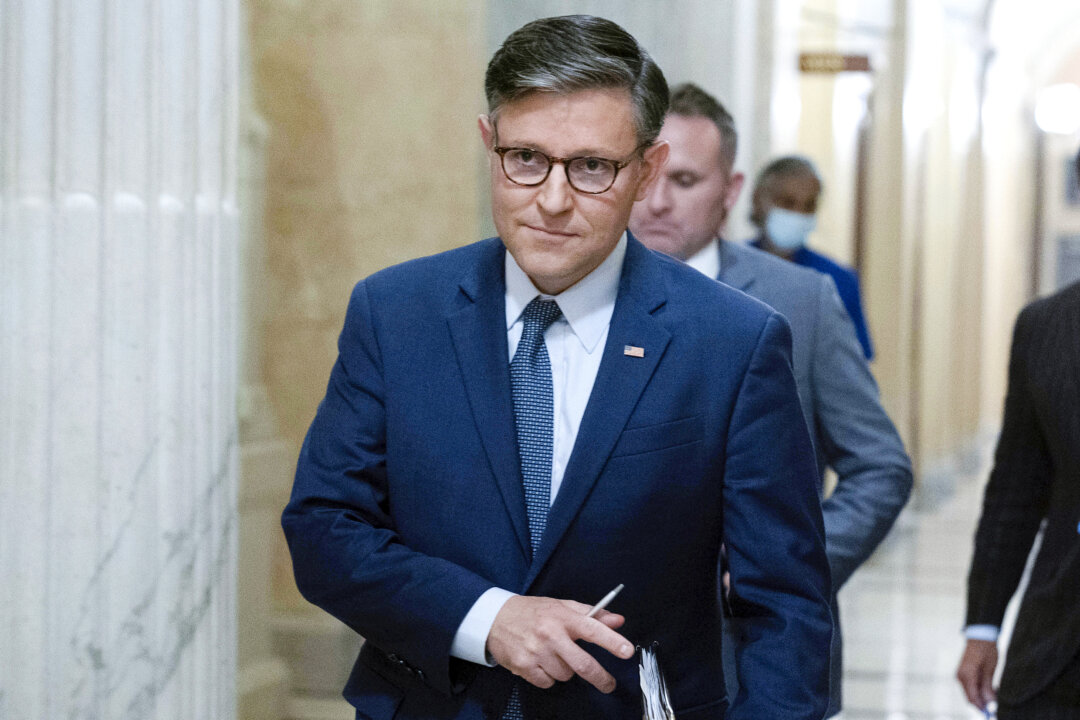House Speaker Mike Johnson (R-La.) yesterday unveiled a short-term measure to fund the government through Dec. 20.
The proposed “clean” continuing resolution, meaning a stopgap measure without partisan or controversial bill riders attached, would remove the Safeguarding American Voter Eligibility (SAVE) Act, which would require proof of citizenship to register to vote. It also includes supplemental funding for the Secret Service.

The bill was introduced eight days before the Sept. 30 deadline to fund the government and avoid a government shutdown.
In a letter to colleagues, Johnson said that a continuing resolution “is the only option that remains” to prevent a government shutdown due to the Senate’s failure to pass any of the year’s 12 appropriations bills.
Last week, the House rejected a bill to continue funding the government into March, including the SAVE Act.
Fourteen Republicans joined 206 Democrats in voting against the bill. Some Republicans rejected the continuing resolution as such, while others criticized the inclusion of the SAVE Act as largely for show, with no chance of becoming law or being implemented before Election Day.
Democrats said the proposal punted the deadline too far into the future and that the SAVE Act was unnecessary because laws on the books prohibit voting by illegal immigrants.
House Minority Leader Hakeem Jeffries (D-N.Y.) didn’t give a firm position on whether Democrats would support the latest iteration of the resolution, saying in a statement that they would “collectively evaluate” the legislation when they return on Sept. 23.
While it is mostly clean, the measure includes additional funding for the Secret Service. The proposed funding was added in the aftermath of two assassination attempts against former President Donald Trump.
The resolution sets aside an additional $231 million for the Secret Service beyond the $3 billion that the agency received for fiscal 2024.
The legislation attaches conditions requiring the director of the Secret Service to present an itemized list describing how the funding will be used within 30 days of the bill’s passage. It would also require speedier compliance with Congress’s requests for documents and information related to the recent assassination attempts.
The proposed funding caps off a week of discussions on Capitol Hill in the aftermath of the most recent apparent assassination attempt.
Following that event, President Joe Biden said that the Secret Service “needs more help,” encouraging Congress to increase funding for the agency.
Senate Majority Leader Chuck Schumer (D-N.Y.) indicated last week that the upper chamber is open to providing additional funding for the Secret Service.
“Congress has a responsibility to ensure the Secret Service and all law enforcement have the resources they need to do their jobs,” Schumer said on the Senate floor on Sept. 16.
“So as we continue the appropriations process, if the Secret Service is in need of more resources, we are prepared to provide it for them, possibly in the upcoming funding agreement.”
Acting Secret Service Director Ronald Rowe has said that the agency needs more funding and has been in discussions with Congress.
The House unanimously voted on Sept. 20 to expand the task force investigating the July 13 assassination attempt at the Trump campaign rally in Butler, Pennsylvania. Secret Service shot and killed the would-be assassin, who was stationed on a warehouse rooftop nearby.
The Sept. 15 apparent assassination attempt occurred as a Secret Service agent spotted the barrel of a gun through a perimeter fence at Trump International Golf Club in West Palm Beach, Florida, where Trump was golfing. Trump was at least 500 yards from the scene.
—Joseph Lord, Jackson Richman
BOOKMARKS
Trump again declined a second debate with Harris, The Epoch Times’ Tom Osijek reported. Trump said the timing of the Oct. 23 debate was too late in the cycle, as voting has already begun. Harris had accepted CNN’s invitation for an October 23 debate, but Trump dismissed the idea, framing it as an attempt to salvage a struggling campaign and citing Harris’s rejection of a debate he proposed to be hosted by Fox News.
The Trump campaign ramped up legal spending in August as the candidate’s court battles continue in multiple venues, The Epoch Times’ Austin Alonzo reported. According to FEC records, the Trump campaign and its financial allies paid more than $2 million in legal fees in August, much higher than the $540,000 spent in July.
The Arizona Supreme Court ruled on Sept. 20 that nearly 98,000 people whose proof of citizenship documents had not been confirmed could vote in state and local races, The Epoch Times’ Caden Pearson reported. The decision came after officials learned that a database error led to those who hadn’t provided proof of citizenship—in line with a 2004 referendum—being allowed to vote over the past 20 years.
Concerns of a wider regional conflict in the Middle East are growing as Israel and Hezbollah continue to exchange fire, The Epoch Times’ Melanie Sun reported.

